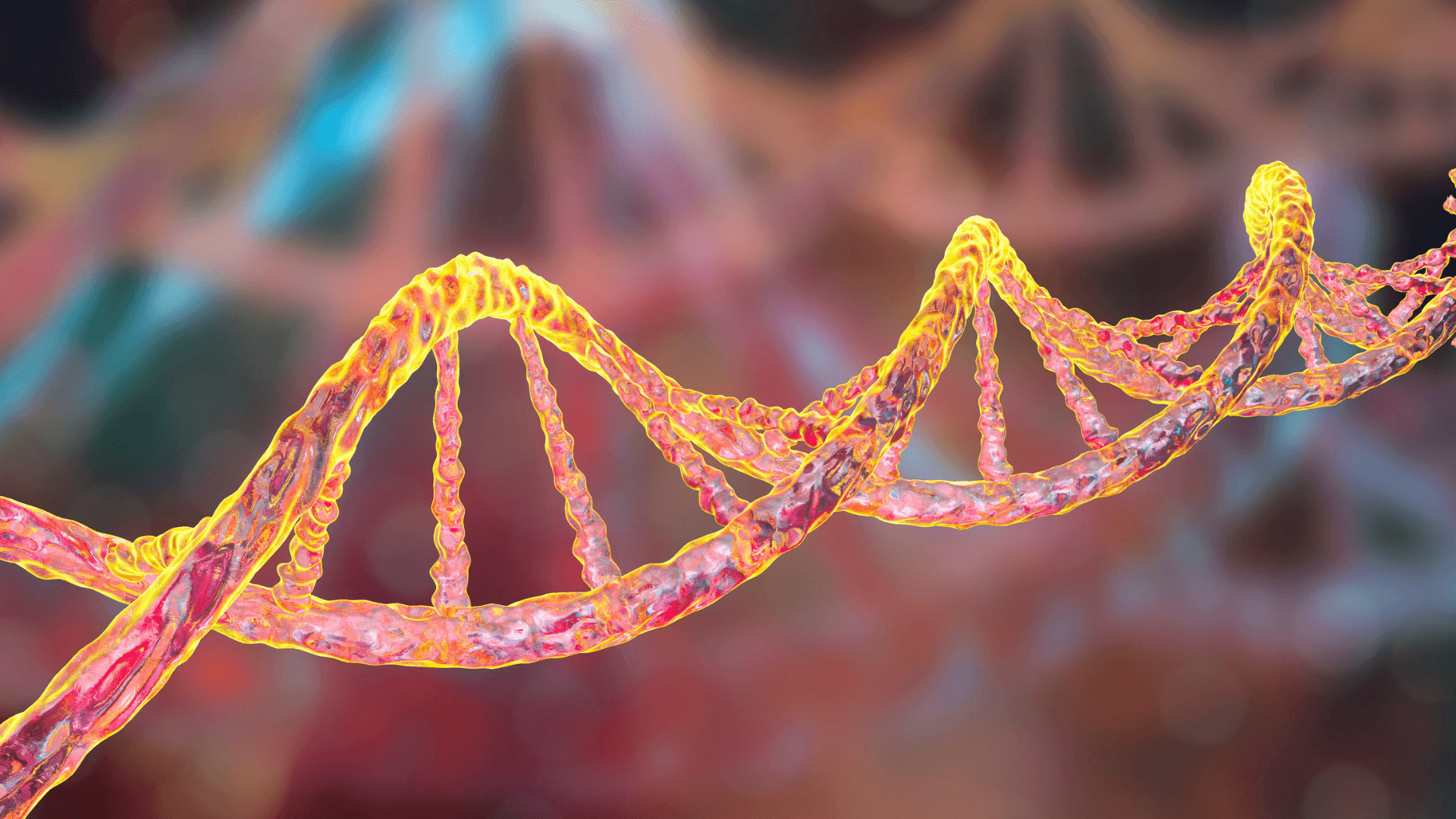Study Reveals Human Microbiome is Highly Individualized
Study Reveals Human Microbiome is Highly Individualized
Study Reveals Human Microbiome is Highly Individualized
Sep 2, 2024
Sep 2, 2024
Sep 2, 2024

Illustrative image. Credit: Getty Images via Canva.
Illustrative image. Credit: Getty Images via Canva.
Illustrative image. Credit: Getty Images via Canva.
A new study reveals that the human microbiome, made up of trillions of microorganisms, is highly individualized, varying significantly from person to person. These findings open doors for personalized health treatments and new approaches to combating diseases.
A new study reveals that the human microbiome, made up of trillions of microorganisms, is highly individualized, varying significantly from person to person. These findings open doors for personalized health treatments and new approaches to combating diseases.
A new study reveals that the human microbiome, made up of trillions of microorganisms, is highly individualized, varying significantly from person to person. These findings open doors for personalized health treatments and new approaches to combating diseases.
A study led by scientists at Stanford University has revealed that the human microbiome – the collection of microorganisms that inhabit the body – is highly individualized, and each person's specific bacteria are the most stable over time. The research followed 86 participants for up to six years, showing that this unique microbial community is essential for health, while changes in the microbiome are linked to infections and chronic diseases.
Individualized Microbiome
The research showed that each person has a distinct microbiome, with certain unique bacteria that are more stable than those shared among individuals. "No two microbiomes are alike," says Michael Snyder, a professor of Genetics at Stanford and the study's lead author. The scientists found that these differences vary from person to person and are also shaped by factors such as diet, environment, and immune system, creating a unique microbial signature for each individual.
Microbiome and Health
One of the study's most remarkable findings is the relationship between microbiome stability and overall health. When a person's microbiome remains stable, it generally indicates a healthy state. On the other hand, changes in the microbiome, especially in the gut, have been associated with infections, inflammation, and chronic diseases like type 2 diabetes. Individuals with this condition, for example, showed significantly less stable microbiomes, suggesting a connection between microbial dysfunction and the development of diseases.
Long-Term Study
To reach these conclusions, the researchers collected thousands of microbiome samples from the gut, mouth, skin, and nose of the 86 participants over six years. The study allowed scientists to observe how these populations of microorganisms changed in response to health events and environmental factors.
During respiratory infections, for example, the microbiome of the respiratory tract changed, and these alterations were also observed in other parts of the body, such as the gut and skin, suggesting a coordinated immune response.
No "Ideal Microbiome"
One of the study's most innovative aspects was challenging the idea that there is a "standard" or ideal microbiome for everyone. The study reinforces that each person's microbial composition is highly individualized, and what is considered healthy for one person may not necessarily be healthy for another. "Microbiological health is relative and depends on various factors such as diet, lifestyle, and environmental interactions," Snyder emphasized.
Impact on Health
The study's results highlight that an individualized microbiome affects metabolic and immune health. This unique microbial community helps regulate the immune system, directly influencing how the body responds to pathogens and inflammation. Moreover, the research suggests that, instead of aiming for a universal ideal microbiome, health approaches should focus on supporting each individual's microbial diversity and stability.
—
Want to learn more about how this study could impact future research? Check out the full study and the article that inspired this piece.
A study led by scientists at Stanford University has revealed that the human microbiome – the collection of microorganisms that inhabit the body – is highly individualized, and each person's specific bacteria are the most stable over time. The research followed 86 participants for up to six years, showing that this unique microbial community is essential for health, while changes in the microbiome are linked to infections and chronic diseases.
Individualized Microbiome
The research showed that each person has a distinct microbiome, with certain unique bacteria that are more stable than those shared among individuals. "No two microbiomes are alike," says Michael Snyder, a professor of Genetics at Stanford and the study's lead author. The scientists found that these differences vary from person to person and are also shaped by factors such as diet, environment, and immune system, creating a unique microbial signature for each individual.
Microbiome and Health
One of the study's most remarkable findings is the relationship between microbiome stability and overall health. When a person's microbiome remains stable, it generally indicates a healthy state. On the other hand, changes in the microbiome, especially in the gut, have been associated with infections, inflammation, and chronic diseases like type 2 diabetes. Individuals with this condition, for example, showed significantly less stable microbiomes, suggesting a connection between microbial dysfunction and the development of diseases.
Long-Term Study
To reach these conclusions, the researchers collected thousands of microbiome samples from the gut, mouth, skin, and nose of the 86 participants over six years. The study allowed scientists to observe how these populations of microorganisms changed in response to health events and environmental factors.
During respiratory infections, for example, the microbiome of the respiratory tract changed, and these alterations were also observed in other parts of the body, such as the gut and skin, suggesting a coordinated immune response.
No "Ideal Microbiome"
One of the study's most innovative aspects was challenging the idea that there is a "standard" or ideal microbiome for everyone. The study reinforces that each person's microbial composition is highly individualized, and what is considered healthy for one person may not necessarily be healthy for another. "Microbiological health is relative and depends on various factors such as diet, lifestyle, and environmental interactions," Snyder emphasized.
Impact on Health
The study's results highlight that an individualized microbiome affects metabolic and immune health. This unique microbial community helps regulate the immune system, directly influencing how the body responds to pathogens and inflammation. Moreover, the research suggests that, instead of aiming for a universal ideal microbiome, health approaches should focus on supporting each individual's microbial diversity and stability.
—
Want to learn more about how this study could impact future research? Check out the full study and the article that inspired this piece.
A study led by scientists at Stanford University has revealed that the human microbiome – the collection of microorganisms that inhabit the body – is highly individualized, and each person's specific bacteria are the most stable over time. The research followed 86 participants for up to six years, showing that this unique microbial community is essential for health, while changes in the microbiome are linked to infections and chronic diseases.
Individualized Microbiome
The research showed that each person has a distinct microbiome, with certain unique bacteria that are more stable than those shared among individuals. "No two microbiomes are alike," says Michael Snyder, a professor of Genetics at Stanford and the study's lead author. The scientists found that these differences vary from person to person and are also shaped by factors such as diet, environment, and immune system, creating a unique microbial signature for each individual.
Microbiome and Health
One of the study's most remarkable findings is the relationship between microbiome stability and overall health. When a person's microbiome remains stable, it generally indicates a healthy state. On the other hand, changes in the microbiome, especially in the gut, have been associated with infections, inflammation, and chronic diseases like type 2 diabetes. Individuals with this condition, for example, showed significantly less stable microbiomes, suggesting a connection between microbial dysfunction and the development of diseases.
Long-Term Study
To reach these conclusions, the researchers collected thousands of microbiome samples from the gut, mouth, skin, and nose of the 86 participants over six years. The study allowed scientists to observe how these populations of microorganisms changed in response to health events and environmental factors.
During respiratory infections, for example, the microbiome of the respiratory tract changed, and these alterations were also observed in other parts of the body, such as the gut and skin, suggesting a coordinated immune response.
No "Ideal Microbiome"
One of the study's most innovative aspects was challenging the idea that there is a "standard" or ideal microbiome for everyone. The study reinforces that each person's microbial composition is highly individualized, and what is considered healthy for one person may not necessarily be healthy for another. "Microbiological health is relative and depends on various factors such as diet, lifestyle, and environmental interactions," Snyder emphasized.
Impact on Health
The study's results highlight that an individualized microbiome affects metabolic and immune health. This unique microbial community helps regulate the immune system, directly influencing how the body responds to pathogens and inflammation. Moreover, the research suggests that, instead of aiming for a universal ideal microbiome, health approaches should focus on supporting each individual's microbial diversity and stability.
—
Want to learn more about how this study could impact future research? Check out the full study and the article that inspired this piece.
Share on:
Share on:
See Also
See Also

DeepSeek AI: The Chinese Chatbot That Is Shaking Up the Global Market
Feb 7, 2025

Study Reveals That an Active Social Life Can Reduce Dementia Risk
Feb 4, 2025

Lunar New Year 2025: The Arrival of the Year of the Snake
Jan 30, 2025

New Hypothesis on the Origin of Dinosaurs Challenges Traditional Concepts
Jan 27, 2025

Emotions and the Human Body: Millennia-Old Connections in Neo-Assyrian Texts
Dec 20, 2024

Study Links Air Pollution to Risk of Venous Thromboembolism
Dec 20, 2024

Potentially Habitable Environment on Mars Discovered by Perseverance
Dec 20, 2024

Collapse of the Conger Ice Shelf: Alert for East Antarctica
Dec 20, 2024

Revolution XRISM: New Discoveries About Supermassive Black Holes
Oct 15, 2024

Study Shows that Duplication of the AMY1 Gene, Related to Starch Digestion, Predates Agriculture
Oct 14, 2024

Births in the EU Fall Below 4 Million for the First Time Since 1960
Oct 11, 2024

Excavation in Denmark Reveals 50 Incredibly Preserved Viking Skeletons
Oct 10, 2024

Study Indicates Higher Incidence of Asthma and Allergic Rhinitis in People Born in Autumn and Winter in Finland
Oct 9, 2024

Study Demonstrates Similarities Between Ice Age Adolescents' Puberty and Modern Youth
Oct 8, 2024

DNA Analysis in 3,600-Year-Old Chinese Mummies Reveals World's Oldest Cheese
Oct 7, 2024

Study Reveals Genetic Stability of Southern African Populations Over 10 Millennia
Oct 4, 2024

Nine Mythical Places That May Have Existed, According to Archaeological Discoveries
Oct 3, 2024

How Human Rights Can Save Coral Reefs and Hold Governments Accountable
Oct 2, 2024

Carbon Brief Report Indicates 2024 Could Be the Hottest Year on Record
Sep 4, 2024

Climate Determines Mammal Distribution, Reveals Study by North Carolina State University
Sep 4, 2024

DeepSeek AI: The Chinese Chatbot That Is Shaking Up the Global Market
Feb 7, 2025

Study Reveals That an Active Social Life Can Reduce Dementia Risk
Feb 4, 2025

Lunar New Year 2025: The Arrival of the Year of the Snake
Jan 30, 2025

New Hypothesis on the Origin of Dinosaurs Challenges Traditional Concepts
Jan 27, 2025

Emotions and the Human Body: Millennia-Old Connections in Neo-Assyrian Texts
Dec 20, 2024

Study Links Air Pollution to Risk of Venous Thromboembolism
Dec 20, 2024

Potentially Habitable Environment on Mars Discovered by Perseverance
Dec 20, 2024

Collapse of the Conger Ice Shelf: Alert for East Antarctica
Dec 20, 2024

Revolution XRISM: New Discoveries About Supermassive Black Holes
Oct 15, 2024

Study Shows that Duplication of the AMY1 Gene, Related to Starch Digestion, Predates Agriculture
Oct 14, 2024

Births in the EU Fall Below 4 Million for the First Time Since 1960
Oct 11, 2024

Excavation in Denmark Reveals 50 Incredibly Preserved Viking Skeletons
Oct 10, 2024

Study Indicates Higher Incidence of Asthma and Allergic Rhinitis in People Born in Autumn and Winter in Finland
Oct 9, 2024

Study Demonstrates Similarities Between Ice Age Adolescents' Puberty and Modern Youth
Oct 8, 2024

DNA Analysis in 3,600-Year-Old Chinese Mummies Reveals World's Oldest Cheese
Oct 7, 2024

Study Reveals Genetic Stability of Southern African Populations Over 10 Millennia
Oct 4, 2024

Nine Mythical Places That May Have Existed, According to Archaeological Discoveries
Oct 3, 2024

How Human Rights Can Save Coral Reefs and Hold Governments Accountable
Oct 2, 2024

Carbon Brief Report Indicates 2024 Could Be the Hottest Year on Record
Sep 4, 2024

Climate Determines Mammal Distribution, Reveals Study by North Carolina State University
Sep 4, 2024